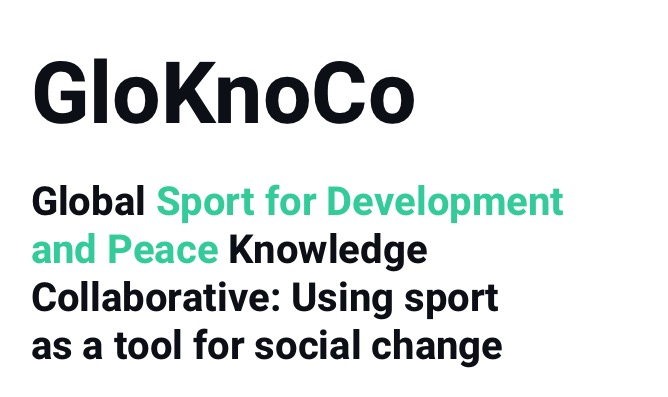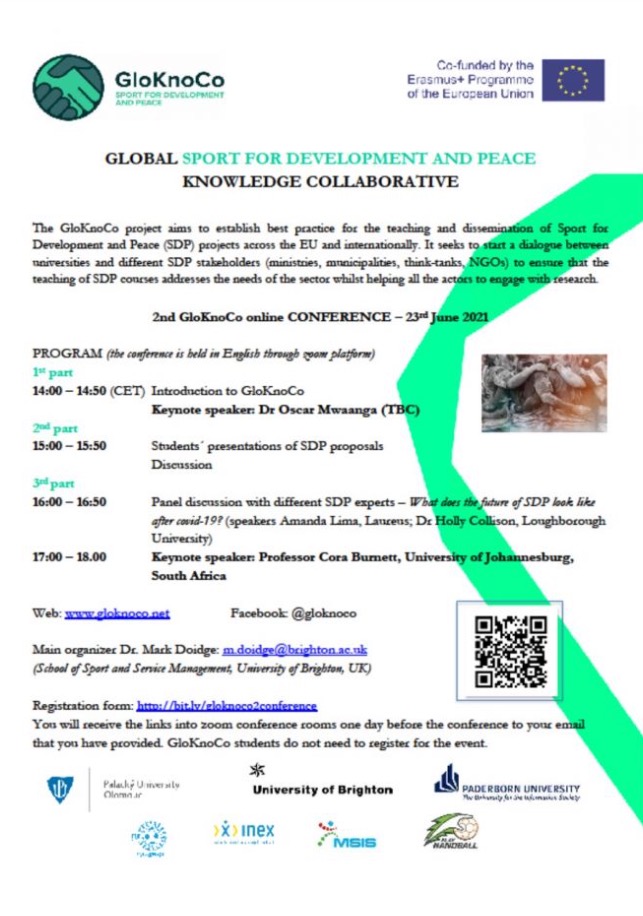The second GloKnoCo Online Conference will take place next week, and consider what is the future for sport for development and peace (SDP) post the Covid-19 pandemic.
The conference, which is being co-ordinated by Brighton University in partnership with universities in the Czech Republic and Germany, will run from 1400 BST until 1800 on Wednesday 23rd June. You can register for it here.
 Speakers include Dr Holly Collison from Loughborough University, and Professor Cora Burnett from the University of Johannesburg.
Speakers include Dr Holly Collison from Loughborough University, and Professor Cora Burnett from the University of Johannesburg.
PURPOSE
GloKnoCo is the Global Sport for Development and Peace Knowledge Collaborative which focuses on the use of sport as a tool for social change.
ConnectSport spoke to Tom Carter, who is Course Lead for the Sport and International Development Masters degree at the University of Brighton, to find out more.
Hi Tom. Thanks for speaking to ConnectSport What is the purpose of the conference?
The conference is the culmination of the second year of a three-year project. Each year culminates in a conference, which highlights the relationship between higher education institutions and NGO partnerships through a course taught to students from Palacky University (Czech Republic), Paderborn University (Germany) and the University of Brighton (UK).
 What is GloKnoCo and why was it set up?
What is GloKnoCo and why was it set up?
GloKnoCo is the Global Sport for Development and Peace Knoweledge Collaborative project which is funded by an Erasmus+ network grant designed to build and strengthen working relationships between universities and NGOs in the sector across Europe.
What do you think will be the principal areas of concern for the SDP sector after Covid-19?
I think the first will be to consolidate activity; the second will be to strengthen existing networks and relationships, and the third will be to search out novel connections as the sector reconfigures in light of the changes being forced on the sector due to Covid-19 and governments' responses to the pandemic.
How can SDP contribute to the recovery from the pandemic?
SDP will likely have to place greater emphasis on health education, health and sanitation delivery, as well as continuing to focus on economic and conflict resolution solutions to intransient challenges in communities around the world.
Is there enough knowledge and support for SDP at policy level, to maximise its contribution to recovery efforts?
No, there definitely is not, as many governments are rethinking their international aid budgets and international development work through the reallocation of resource to other priority areas of concern for those governments.
Register for the conference at this link.













